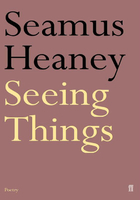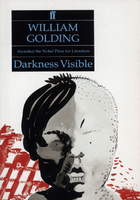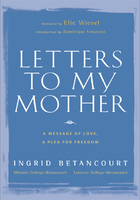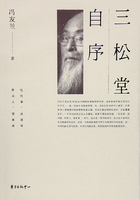Robert's telephone rang when he had been home a quarter of an hour.
"Hello, Robert, this is Jenny. Greg's gone. Oh, gosh, Robert, I'm sorry about today."
"You don't have to apologize. I'm sorry it spoiled your good dinner."
"Oh, we can do that again some time. Listen, Robert, I'd like to see you. It's early. Only seven-thirty. Can I come to your place? I just talked to Greg. He knows I'm not going to marry him, so he has no right to interfere with what I do or who I see. I think he finally realized I meant it."
And Greg would probably be checking on her to see if she went out this evening, Robert thought. Or even watching her house so he could follow her car if she went out. "Jenny, you still sound upset, so why don't you stay in this evening?"
She groaned. "Please let me see you. Can't I come to your place?" She was determined.
Well, there was one way of ending it, he thought, and he would do it. He said yes, she could come, and he told her the two streets the Camelot Apartments were on in Langley. She said she would leave right away.
Five minutes later, the telephone rang again, and he hoped it was Jenny, changing her mind.
This time it was Nickie. She was at a cocktail party and she was a little drunk, she said, and she was with Ralph, but she wanted to wish him a happy marriage anniversary No. 3, which she knew had passed weeks ago, but better late than never.
"Thanks," he said. "Thanks, Nickie."
"Remember our second?" she asked.
He remembered the second all right. "I prefer to remember the first."
"Sen-ti-men-tal. Want to talk to Ralph? Ralph!"
Robert wanted to hang up. But wouldn't that be petulant? Cowardly? He hung on, looked up at the ceiling, and waited. Distant voices murmured and bubbled, like a seething pot, somewhere in Manhattan. Then there was a click-buzz. She had hung up, or someone had hung up for her.
Robert fixed a Scotch and water. Yes, he remembered the second anniversary. They had asked eight or ten friends over, and Robert had brought home a lot of red roses and peonies for the house, and he'd had a slim gold bracelet for Nickie. And then nobody turned up. People had been due at eight for cocktails and a buffet, but at a quarter past nine nobody had arrived, and Robert had said, "Holy cow, do you think we asked people for the wrong date?" Then Nickie, her hands on her hips, had said, "Nobody's turning up, dearie, this is a party just for you and me. So sit down at the other end of this beautiful table and let me tell you a thing or two." She hadn't even had a drink before the first ones she made after he arrived. Robert could always tell which drink was her first and her second and her third. And she hadn't been drunk when she planned the evening ten days before-or at least in between she'd been sober. The invitations were her responsibility. That evening she had talked steadily for at least an hour, drowning out his interruptions by simply raising her voice. She laid every smallest fault of his before him, down to his sometimes leaving his razor on the rim of the basin instead of putting it back into the medicine cabinet; down to the fact he'd forgotten, weeks before, to pick up a dress of hers at the cleaner's; down to the mole on his cheek, the celebrated mole that was not quite an eighth of an inch in diameter (he had measured it once in the bathroom with his little steel ruler), that Nickie had first called distinguished, then ugly, and finally cancerous, and why didn't he have it removed? Robert remembered that he had made himself a second drink during her harangue, a good stiff one, since the wisest thing to show under the circumstances was patience, and the liquor acted as a sedative. His patience that evening had so infuriated her, in fact, that she later lurched against him, bumped herself into him in the bedroom when he was undressing for the night, saying, "Don't you want to hit me, darling? Come on, hit me, Bobbie!" Curiously, that was one of the times he'd felt least like hitting her, so he'd been able to give a quiet "No" in answer. Then she called him abnormal. "You'll do something violent one day. Mark my words." And a little later that night, "Wasn't it a good joke, Bobbie?" when they were lying in bed, pressing his cheek with her hand, not affectionately but to anger him and keep him from sleeping. "Wasn't it a funny joke, darling?" She had followed him into the living room when he tried to sleep on the sofa there. At last, she had fallen asleep in the bedroom about five in the morning and had waked up when Robert got up to go to work. She had a bad hangover, and as always with a hangover she was remorseful, took his hands and kissed them and said she'd been awful, and would he forgive her, and she promised never, never to act like that again, and he'd been an angel, and she didn't mean anything she'd said about his faults, which were such little faults, after all.
He heard the hooting of a river-patrol siren. Either someone was lost on the rapids or a boat was in danger, he supposed. The siren went on and on, melancholic, urgent, despondent. Robert tried to imagine being turned over and over on the rocks, knocked half unconscious, trying to cling to the rocks and finding them too slippery or himself too weak to hold to them. And the siren moaning on and on while the rescue boats' lights swept over the surface of the Delaware, not finding what they looked for. The fellows at the office had told him that if anyone were caught in the rapids-and there were dozens of them up and down the river-it was hopeless. The best the river patrol could do was find the body. One man at the office had told of finding a corpse lying at the edge of the water in his back yard, the body of an old man who had fallen in twenty miles or so above where he washed up. Or the bodies could wash all the way down to Trenton. Robert set his teeth. Why think about that, since he had no intention of going swimming or boating or fishing even when the summer rolled around?
Robert walked to his bureau and looked at the sketch he had made of an elm tree out his window, a neat, precise sketch, too precise to be good as a sketch, he supposed, but he was an engineer and precision was his curse. The opposite page of his sketchbook was blank, and later would be filled with a drawing of an elm leaf, when he could see one in the spring.
There was a knock. Robert set his drink down and went to the door.
"Hello," she said.
"Come in." He stood aside for her. "Take your coat?"
She gave him her coat and he put it in the closet. This time she had no snow boots. She wore her high-heeled pumps. "This is a nice apartment," she said.
He nodded, wordless.
She had sat down in the center of his sofa.
He lit a cigarette and took the armchair, then got up to get his drink from the bureau. "Can I give you a drink? Or some coffee? I have espresso or you can have regular."
"No, thanks, I don't want anything. I wanted to say, Robert, that when I talked with Greg just now I didn't say you were the cause of it. But that's part of it."
He stared at the floor.
"You made me see something I never saw before. Like a catalyst. But it's not really the right word, because a catalyst doesn't count as anything but a changer, does it? And you count for something. It's you that I like. Whatever it means-that's it."
"You don't know anything about me," he said. "You don't know, for instance, that I'm married. I told you a lie. I've been married for three years."
"Oh. Then it was because of a girl you left New York. Because of your wife."
"Yes." She looked less surprised than he had expected. "We had a disagreement. You don't know, for instance, that I had a breakdown when I was nineteen. I had to be under treatment for a while. I'm not the stablest character. I nearly cracked up in New York in September. That's why I came down here."
"What's all this got to do with whether I like you or not?"
Robert didn't want to make the bald statement that girls who liked men were usually interested in whether they were married or not. "It makes it difficult, you see, if I'm not divorced."
"And you're not going to be?"
"No. We just want to spend a little time apart, that's all."
"Well-please don't think I'm going to interfere. I couldn't, anyway, if you love somebody. I'm only telling you the way I feel. I love you."
His eyes flickered toward hers and away. "I think the sooner you get over that feeling, the better."
"I'm not going to get over it. I know. I always knew I'd know when it came along. It's just my hard luck you're married, but that doesn't change anything."
Robert smiled. "But you're so young. How old are you, anyway?"
"Twenty-three. That's not so young."
Robert would have guessed even younger. She seemed younger every time he saw her. "I don't know about Greg. Maybe he's not the right fellow for you. But it's not me. I'm a very difficult guy to get along with. Lots of quirks. A little off the beam here and there."
"I think that's for me to say, isn't it?"
"Watching you through your kitchen window isn't the highest recommendation, is it? You should hear what my wife says about me. She thinks I'm ready for an insane asylum." He laughed. "Just ask her."
"I don't care what your wife says." She was leaning sideways on one elbow on the sofa, her body relaxed but her face determined. She looked steadily at him.
"I don't care to play games, Jenny."
"I don't think you're playing games. I think you're being quite honest."
Robert stood up suddenly, carried his glass to the table at the end of the sofa and set it down. "But I wasn't before, was I? I'll be honest, Jenny, I'm a fellow who has to make an effort to hang on to-what'll I call it? Sanity?" He shrugged. "That's why I came here. There's less strain here than in New York. I get along all right with the fellows where I work. I spent Christmas with one of them, with his wife and little girl, and that went all right. But they don't know the effort it takes sometimes, that I have the feeling I have to make an effort every minute." He stopped and looked at her, hoping his words had had some effect.
If anything, her face was less anxious. "We're all trying every minute. What's news about that?"
He sighed. "I'm someone to stay away from. That's what I want you to understand. I'm sick in the head."
"Who said you were sick? Doctors?"
"No, not doctors. My wife. She should know. She lived with me."
"But when you had treatment? When you were nineteen?"
"What did they say then? That I'd reacted in a weak manner to a tough childhood. Like a weak person. I cracked up, yes. That's weak, all right, isn't it?"
"What did you do?"
"I had to quit college for a while. I went swimming in a lake one night with all my clothes on, just on an impulse. I was half determined to kill myself, and I halfway tried it, but just halfway. A cop interfered. They thought I was drunk. I got off with a fine and a night in jail. They insisted I was drunk, so I agreed with them. Why do you think the cops thought I was drunk? Because of the crazy things I was saying." It seemed impossible to convince her. He racked his brain for something else. "And I once pointed a gun at my wife. She was sleeping, taking a nap. I sat in a chair across the room with her hunting rifle pointed at her. The gun was loaded." But the gun had not been loaded. He paused for breath, looking at Jenny. Jenny was frowning slightly, but she did not look frightened, only attentive.
"And what happened?"
"Nothing. I only did it so I could see-or know-I never would pull the trigger. She and I had quarreled just before. That day I thought, 'I hate her enough to kill her, to pay her back for the things she's said.' But when I had the gun in my hands, I just sat there with her body in its sights and thinking that nobody and nothing is worth killing somebody for."
"Well, there you are. You realized that."
"Yes, but can you imagine waking up and seeing someone across the room pointing a rifle at you? What do you think my wife thought? What do you think people thought when she told them about it? And she did tell a lot of people. Yes, there you are. She said I was depressed and repressed and one day I'd kill somebody. She said I wanted to kill her. Well, maybe I did. Who knows?"
She reached for his cigarettes on the coffee table. Robert lit the cigarette for her. "You still haven't told me anything really shocking."
"No?" He laughed. "What else do you want? Vampires?"
"What happened when you had to quit college?"
"Well-I only lost a semester, and during that time I had therapy. Therapy and a lot of odd jobs. When I went back to school, I went to live with a friend, a friend from college. Kermit. He lived near the school with his family. He had a little brother and a little sister and the house was chaos." Robert smiled. "But still it was a home, you know? You won't know unless you've ever not had a home. I had a tiny room to myself and it was hard enough to find an uninterrupted hour to study in, kids were always coming in and out, but around midnight, if Kermit and I were still up studying, his mother would bring us pie and cake and milk. It sounds silly, but it was a home, more than I'd had at my home. Not that I blame my mother. She had her troubles with my father and she did the best she could. But she couldn't make anything solid out of what she had-my father always drinking and divorce or maybe desertion just around the corner. I don't know if I'm making myself clear. Probably not."
"Where's Kermit now?"
"Dead." He took another cigarette. "He died in a fluke accident up in Alaska. We were doing our Army service, and we'd arranged to be in the same outfit. We thought we might get sent to Korea, but neither of us ever saw Korea or ever saw any fighting. Kermit was killed by a catapult. Hit in the back with it. It happened one morning. I was getting some coffee for both of us and I'd just left him for five minutes and was coming back with it-and there he was on the ground dead, with a few fellows standing around him." Robert felt suddenly awkward with her steady, serious eyes on him. He had not mentioned Kermit to anyone in years, had never told the story to any of his friends in New York. "As soon as I got through my Army service, I went to New York," Robert said.
Jenny nodded. "You know something about death, too, then."
"I know something about losing a friend. But death-? I never saw fellows I knew killed all around me, the way a lot of fellows see it in war. Death? No." Robert shook his head.
"I know exactly what you mean about hanging on to sanity. I have to do it, too. When my kid brother died three years ago, I suddenly thought nothing made sense any more. It seemed to me everybody was crazy except me. You know what they always say about real nuts thinking that?" A shy smile spread her lips and made her eyes sparkle. "I mean, the whole world just went on the way it did before, my father went on going to the office, my mother cleaned the house-and yet death had just been staying with us there." She drew on her cigarette, staring ahead at nothing that was in the room. "I was afraid of death. I had to keep thinking about it and thinking about it until I came to terms with it-in my way. Until it became familiar-do you know what I mean?" She glanced up at him, then looked in front of her again. "Now I'm not afraid of it at all. I can understand why the man says 'Brother Death' in your dream."
"Well-I'm not exactly comfortable when I have that dream," Robert said.
She looked at him. "But someday you will be, if you think about it. Think long enough about it."
Involuntarily, Robert shook his head. It was almost a shudder. He stared at her young face, puzzled.
"When I realized this about death," she went on, "I saw the world in a different way. Greg thinks death depresses me, but he's wrong. I just don't like to hear other people talking about it with the usual horror. You know. And-after I met you, you made me see the world in a different way, too, only a much happier way. For instance, the whole inside of the bank where I work. It used to be so bleak and so bo-oring. It's different now. It's cheerful. Everything's easier."
Oh, he knew the feeling. Being in love. Suddenly the world's O.K. Suddenly the barren trees are singing. The girl was so young. Now she was talking about Dostoevski, and he was hardly listening, because he was trying to think how to cut it off, painlessly. All their conversation had done, he felt, was trammel her more with him. He walked the floor while she talked about "destiny" and "infinity"-she seemed to believe in an afterlife-and then he said, "Jenny, all I was trying to say before is that I can't see you any more. I'm sorry, but that's it."
Now she looked suddenly tragic, her wide mouth drooping at the corners, and he was sorry he had spoken so bluntly, but what else would have done? He walked back and forth, hands in his pockets.
"You don't enjoy seeing me?" she asked.
"I do very much. But it's the wrong thing to do. I enjoy thinking of you being happy. Can you understand that? When I used to watch you through the kitchen window, I liked to think of you happy, with a boy friend you'd finally marry-and that's all. It was a mistake to get to know you and a mistake-" It didn't seem necessary to finish. He wished she would leave. He turned, hearing the rustle of her getting up.
"One thing I want to thank you for," she said, "and that's for making me realize I didn't love Greg and that I shouldn't marry him. I thank you very much for that."
"I don't imagine Greg does."
"I can't help that. That's the way it is, as you said." She made a try at a smile. "So goodbye."
He walked with her to the door. She had taken her coat from the closet and put it on before he could help her. "Goodbye."
And she was suddenly gone. The room was empty again.















